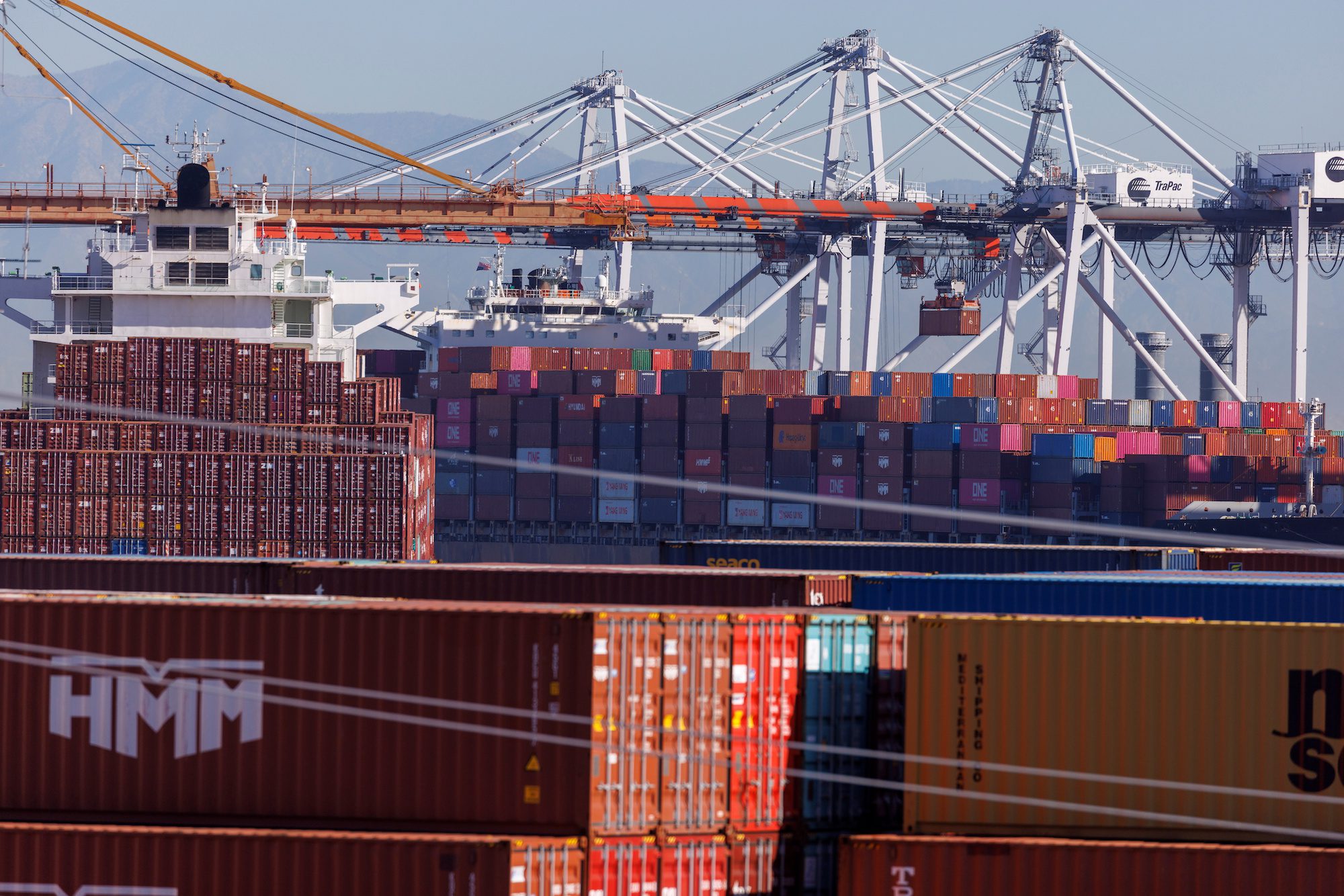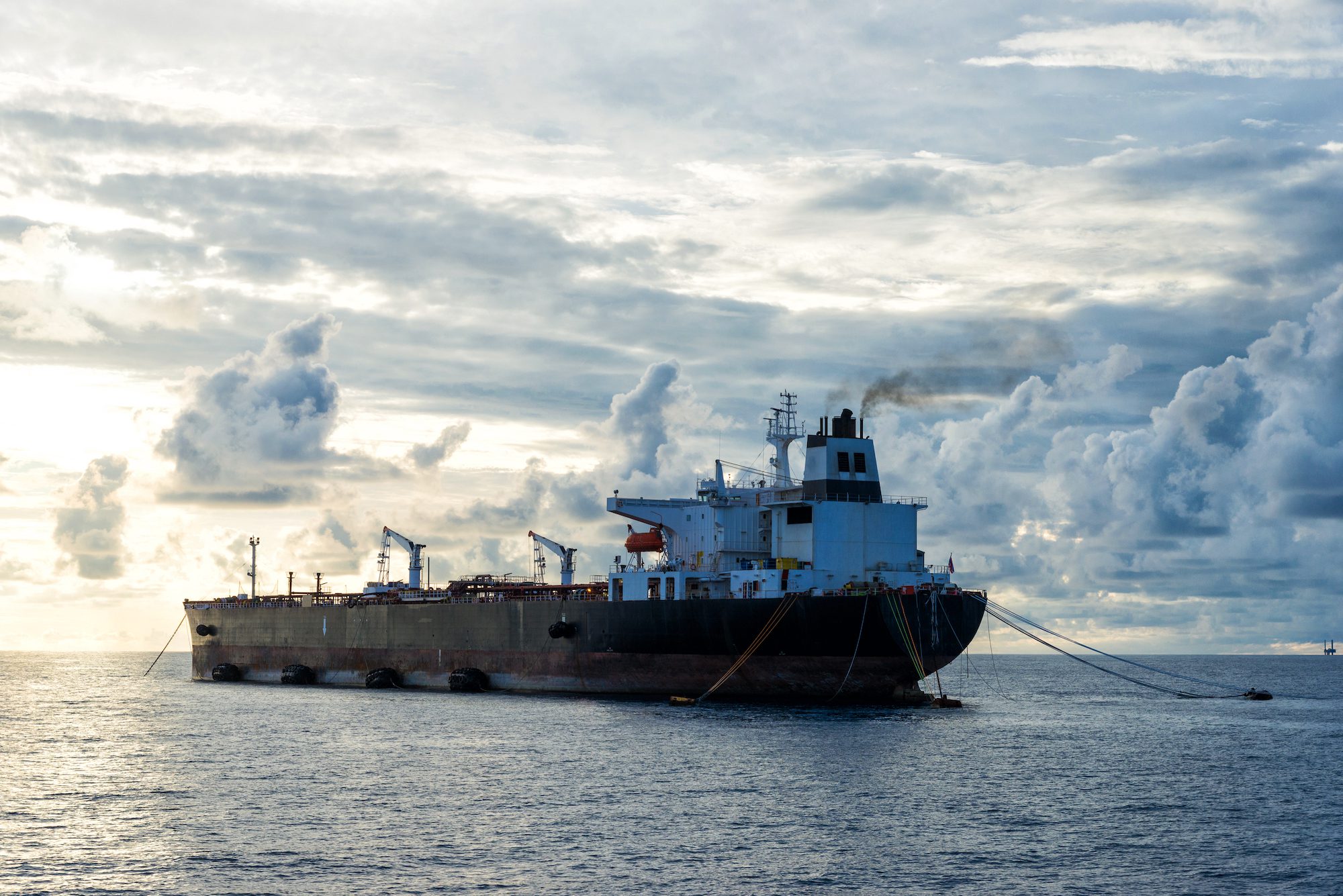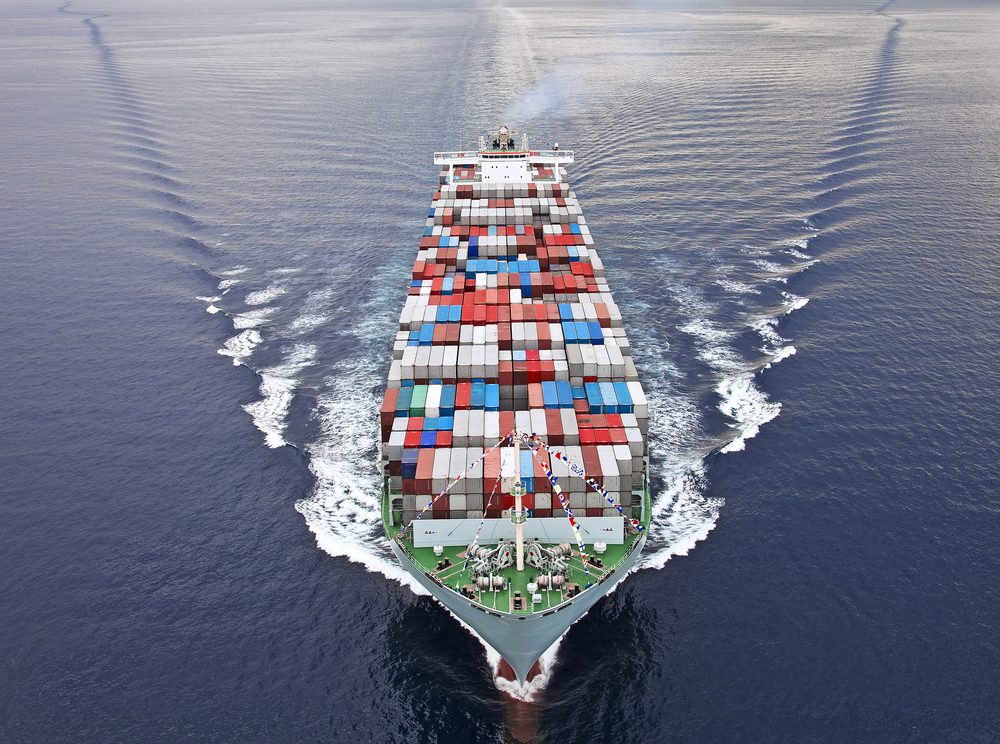U.S. Senator Amy Klobuchar (D-MN) has introduced legislation to update federal regulations for the international liner shipping industry aimed at helping American exporters.
The Ocean Shipping Reform Act would address supply chain challenges by making it harder for ocean carriers to “arbitrarily turn away goods” at ports that are ready to be shipped abroad and also give the Federal Maritime Commission (FMC), the federal agency responsible for the regulation of international ocean shipping, greater authority to regulate “harmful practices” by carriers.
The bill is co-led by Senator John Thune (R-SD) and cosponsored by a bipartisan group of 12 senators. Similar legislation was led in the House by Representatives John Garamendi (D-CA) and Dusty Johnson (R-SD) and passed the House with overwhelming bipartisan support in December. The legislation has been touted as the first major update to federal regulations for the global ocean shipping industry in over two decades.
“Congestion at ports and increased shipping costs pose unique challenges for U.S. exporters, who have seen the price of shipping containers increase four-fold in just two years. Meanwhile, ocean carriers have reported record profits,” said Senator Klobuchar. “This legislation will help level the playing field for American exporters so they can get their goods to market in a timely manner for a fair price. As we work to improve our supply chains, I’ll keep fighting to establish trade opportunities for the U.S.”
Specifically, the Ocean Shipping Reform Act would:
- Require ocean carriers to certify that late fees —known in maritime parlance as “detention and demurrage” charges—comply with federal regulations or face penalties;
- Shift burden of proof regarding the reasonableness of “detention or demurrage” charges from the invoiced party to the ocean carrier;
- Prohibit ocean carriers from unreasonably declining shipping opportunities for U.S. exports, as determined by the FMC in new required rulemaking;
- Require ocean common carriers to report to the FMC each calendar quarter on total import/export tonnage and 20-foot equivalent units (loaded/empty) per vessel that makes port in the United States;
- Authorize the FMC to self-initiate investigations of ocean common carrier’s business practices and apply enforcement measures, as appropriate; and
- Establish new authority for the FMC to register shipping exchanges.
U.S. agricultural exports have been hit by congestion in the supply chain. In the first nine months of 2021 alone, the U.S. dairy industry lost approximately $1.3 billion as a result of higher shipping and storage costs, according to the National Milk Producers Federation (NMPF) and the U.S. Dairy Export Council (USDEC).
“This Senate bill takes strong strides to address many of the challenges dairy exporters have faced, including securing export vessel bookings and combatting unfair detention and demurrage charges, vital issues to ensure our products reach their intended destinations,” said Krysta Harden, president and CEO of USDEC. “When we can’t export our products, we not only jeopardize our foreign customer relationships and markets, but we also lose value-added opportunities that create jobs and investment in the United States. We look forward to continuing to work with Senators Klobuchar and Thune, and others in Congress, to address outstanding concerns and provide for the strongest possible reforms.”
The World Shipping Council (WSC), representing the international liner shipping industry, said regulating ocean carriers won’t help solve issues plaguing the U.S. supply chain.
“Ocean carriers have deployed every available ship and container to move the continuing record levels of cargo resulting from pandemic-driven U.S. demand for imports—but when ships cannot get into port to discharge and load cargo because of landside logistics breakdowns, it is clear that further regulating ocean carriers will not solve the deeper challenges in U.S. supply chains,” says John Butler, President & CEO of the WSC.
“The deeply flawed bill passed by the House at the end of last year would place government officials in the role of second-guessing commercially negotiated service contracts and dictating how carriers operate ship networks – an approach that would make the existing congestion worse and stifle innovation,” added Butler.
The World Shipping Council says it will continue to work with the Congress to craft legislation that takes “a comprehensive, forward-looking view of the real root causes of supply chain congestion – and that does not make that congestion worse.”
Separately, Senator Klobuchar also introduced legislation to hold ocean carriers more accountable for anticompetitive behavior.
Known as the Ocean Shipping Competition Reform Act, the legislations would allow for third parties, including shippers and ports, to get involved in legal matters brought by the FMC against ocean carriers in vessel sharing agreements, also known as “alliances”.
Sign up for our newsletter

 Join The Club
Join The Club













